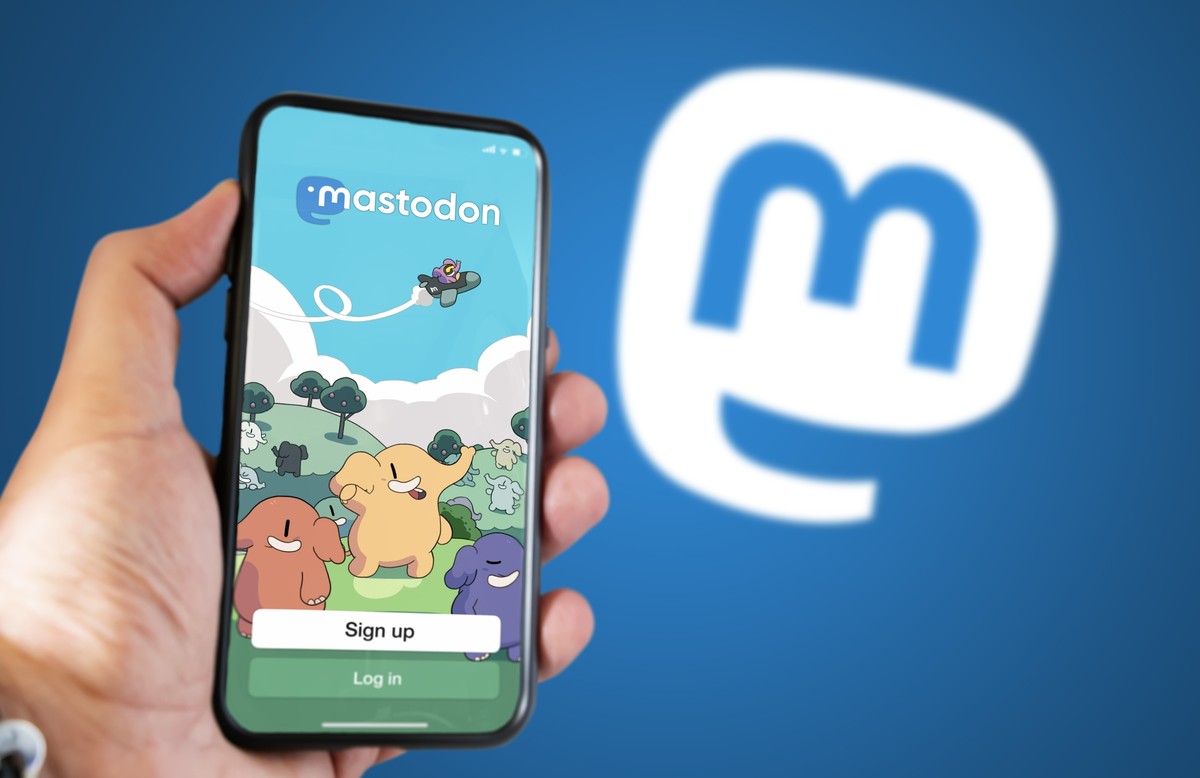The “plundering” of social, alternative and fediverse networks
There is a lot of talk about “caching” or the loss of quality that is increasingly the services and products of the network. Social networks are not free from this phenomenon, and many of its users are looking for alternatives, so new opportunities are also being offered to them. Most of them, however, have the same problem as others: they are centralised services offered by large profit-making companies. The real alternative is decentralized social networks with open protocols that arise from volunteering or associationism; a fediverse that already exists and we have known for a long time.
The progressive loss of quality that is taking place in online platforms and tools has been called enshittification, which can be translated as “cacaze”. At first, they offer high-quality services to attract users, then they direct their efforts towards business customers to increase their profitability and, finally, focus their attention on maximizing shareholder profits and significantly worsening the experience of business users and customers. Many examples of this hunt are cited, and we have certainly also noted the deterioration in: Airbnb, Amazon, Facebook, Google search, YouTube, Uber...
The funneling of social networks
Social networks, of course, do not get rid of this deterioration. In creating these services created to bring social relations to the virtual world, we built our network of contacts, connecting with our real-life acquaintances, meeting new people or following famous people. And through the so-called timeline, chronologically, we received the information from the messages posted by our network of contacts and we made them known. After all, it was like going down to the plaza or the tavern to be and talk to our family, friends and acquaintances, but in cyberspace.
Over time, however, all these social networks (Facebook, Twitter, Instagram, TikTok...) replaced this temporal timeline with the content determined by an algorithm. This algorithm is designed to show the content that we're supposed to be interested in, but actually, its goal is that we can be as long as possible in these services.
To do this, not only do they show us the content of our contact networks, but, on the contrary, most of their content belongs to people we do not follow. Continuing with the comparison of going out to the old street, it is as if the strangers continually came to send us their sermons. And they show us the most controversial content, because they've shown that they're the ones that generate dependency. On the other hand, they also show us many custom publications.
Perhaps the social network that has been doing the worst is Twitter (today X), especially since Elon Musk bought it. To reduce losses, 80% of workers were dismissed, including those engaged in moderation, which has led to an increase in fake accounts, bots, hate messages, harassment, freezing or unjustified account closure... Musk has taken a lot of controversial decisions that people have not liked, and the attitude he shows in his tweets has also caused many users to have preferred to leave. Meta, for its part, rejected many European users of Instagram and Facebook social networks in June, saying that it would use users’ messages (texts and images) to train their AI systems (although it eventually withdrew due to pressure from regulators).
Creation of new “alternatives”
Faced with these exoduses of users, alternative social networks have been created in the last two years. The best known, probably, will be BlueSky and Threads, which have the shape and functionality of Twitter, and which have been created with the intention of replacing it. Threads belongs to the company Meta and BlueSky is a Twitter creator created by Jack Dorsey (although currently it is no longer in the company).
However, it is at least doubtful whether the latter are real alternatives, as they have the same problem as other social networks, which is the company behind them. In addition, in the case of Threads, the Facebook and Instagram company itself, founder of Cambridge Analytica and other scandalous cases (where user data was collected without their consent and used for political propaganda, such as in the election processes won by Donald Trump and Brexit). It is possible that these new social networks will behave in the first place better than the others, differentiating themselves from them to get users, but if companies are behind, winning in the market, they will certainly not take long to win.
On the other hand, photographer Zhang Jingna created Cara to protect artists from the attitude of other social networks towards artificial intelligence. This social network aims to protect true artists (photographers, cartoonists...) in two ways: on the one hand, by not admitting the content generated through artificial intelligence, and on the other, by preventing its content from being used to train artificial intelligence systems. The first objective is mainly through moderation, as it is not easy to automatically distinguish the content generated through artificial intelligence through the use of artificial intelligence. For the second objective, search engines and scrapers label “NoAI” (not for artificial intelligence) to the content, but as a volunteer, they also use the Glaze tool. This tool introduces small modifications to images, a few pixels, changes that humans cannot notice, but that say they are very confusing for artificial intelligence systems, and that if used to train these images, the results get worse (at least for today’s systems; it is not clear whether in the future these protections will continue to work).
However, for the time being, it seems that none of the new alternatives mentioned has reached a high number of users or activities, or at least in a large number of countries, and comparable to those of other networks. There's the problem of critical mass, because social media is about communicating with us, who are we going to communicate with if there aren't a lot of people and if everybody is somewhere else? In the case of Cara, in addition, it seems that many artists have passed, but not ordinary users, and as artists use social networks to make their work known and promoted, how will they get it without an audience?
Fediverso
The real alternative exists much earlier than those created in the last two years: the fediverse. The word “fedibertso” is a portmanteau or combination of the words “federate” and “universe”, which designates an ecosystem formed by social networks that communicate with each other through an open standard protocol. This protocol is called ActivityPub and, as its name suggests, it is a protocol to publish activities or content in a social network. It allows you to federate with other social networks that use the same protocol in order to see the content of users of other networks and share with them our content and to exchange comments and answers. In short, the fediverse is a social network composed of a wide variety of nodes, in which each node has its own users, rules and moderators, but all nodes are connected.
The Mastodon network is a part of the fedibertso, a microblogging service similar to Twitter but decentralized, and is part of it the Basque nodes Mastodon.eus and Jalgi.eus. Another part is the Pixelfed network, a decentralized service similar to Instagram, with a Basque node Pixelfed.eus. Peertube is a service to publish and share videos, such as Youtube, which has among others a node in Euskera Peertube.eus. And there are many social networks specialized in other types of content: for books, BookWyrm/Paperjale.eus; for audio, Funkwhale/BaleaFunk.eus: for forums, Lemmy/Lemmy.eus...
Each Fedibertso node is managed by a community or association that protects it from the puppy. Even in the case of nodes with a company behind, if you go to the ccon, it affects this node, not the whole fediverse.
It is true that, although for the whole of Fedibertso, the number of users cannot be compared with that of other social networks. But the influence it has had on the “alternatives” mentioned above is significant. In fact, Threads has implemented ActivityPub for fedibertso users to follow Threads and vice versa, but many fedibertso nodes have decided to block the Threads federation because they consider length would be harmful to the fedibertso (business interests, size imbalances, risk of phagocytation...). On the other hand, although the BlueSky initiative belongs to a company and the managers have launched a single node, it uses an open decentralized protocol (it is not ActivityPub, but the AT protocol created by them) and, in theory, it can create new nodes to federate with them. It is clear that the fediverse is a qualitatively very different concept and therefore it is important that the new social networks strive to copy some of their characteristics to differentiate them from the classic ones.








